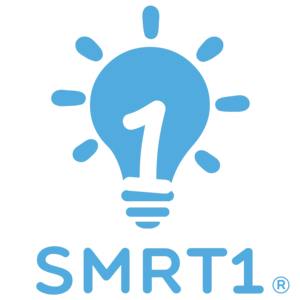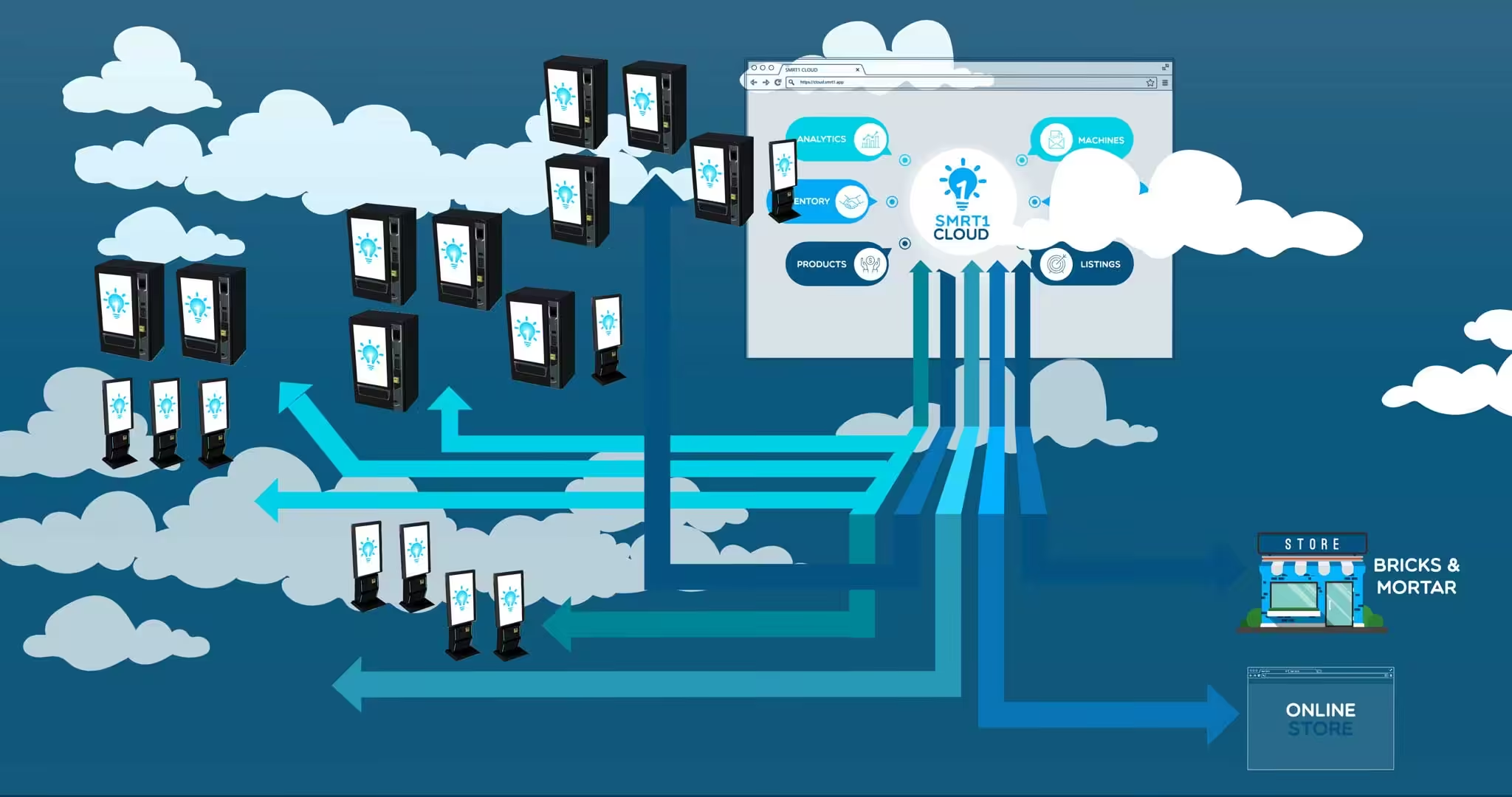Traditional vending machines have been around for over a century, offering simple, mechanical dispensing of products. Smart vending machines, however, represent a significant technological leap forward. While traditional vending machines are standalone, mechanical units that dispense products when you insert coins and press buttons, smart vending machines are cloud-connected, interactive systems that offer personalized experiences and gather valuable data.
Smart vending represents a fundamental evolution in automated dispensing technology. While traditional vending machines are simply mechanical dispensers, smart vending machines like SMRT1’s CARE PODs are sophisticated, connected systems that combine the convenience of immediate product access with the intelligence of digital technology.
This evolution has transformed vending from a simple retail channel into a powerful healthcare delivery tool, capable of extending care beyond traditional boundaries, collecting valuable data, and providing dignified, private access to essential health supplies and information. By embracing smart vending technology, healthcare providers, public health departments, and community organizations can overcome barriers of time, place, and stigma – ultimately creating healthier communities through innovative access to care.
Interactive User Experience
Traditional Vending: Basic button or keypad interface where customers press codes to select items. Limited product information is displayed through small labels or static images.
Smart Vending: Features large, interactive touchscreens that provide detailed product information, high-quality images, videos, nutritional facts, and usage instructions. SMRT1’s systems can even offer personalized recommendations and educational content based on user interactions.
This interactive interface allows users to learn about medication usage, harm reduction techniques, or health resources while making their selection – turning a transaction into an educational opportunity.
Payment Flexibility
Traditional Vending: Typically limited to accepting coins and bills, creating barriers when customers don’t have exact change.
Smart Vending: Accepts a wide variety of payment methods including credit/debit cards, mobile wallets (Apple Pay, Google Pay), QR codes, loyalty cards, and traditional cash. This flexibility increases sales conversion rates and average transaction values while removing barriers to access.
This payment flexibility is crucial. For example, SMRT1 CARE PODs can be configured to dispense free health supplies like naloxone kits or safe injection supplies without payment, using simple verification processes instead, while still accepting payments for other items.
Cloud Connectivity & Remote Management
Traditional Vending: Requires physical visits to check inventory, update prices, or address issues. No real-time visibility into machine status or inventory levels.
Smart Vending: Connected to the cloud, allowing operators to monitor and manage machines remotely. Inventory levels, machine status, and sales data are available in real-time through the SMRT1 Cloud dashboard. Content, pricing, and product information can be updated remotely without visiting the machine.
This connectivity ensures critical supplies remain stocked and available when needed most. Health departments can monitor usage patterns across locations to ensure resources are allocated effectively.
Data Analytics & Insights
Traditional Vending: Provides minimal data, usually limited to basic sales and inventory counts collected manually during service visits.
Smart Vending: Collects comprehensive data on customer interactions, popular items, peak usage times, dwell time, search queries, and even anonymous demographic information. This data can be analyzed to optimize product selection, pricing strategies, and machine placement.
This anonymized data collection is particularly valuable. SMRT1 CARE PODs can provide health departments with insights into community needs, usage patterns, and program effectiveness while maintaining user privacy – all critical for public health decision-making and resource allocation.
Product Versatility & Dispensing
Traditional Vending: Typically limited to shelf-stable, uniformly sized products like snacks and beverages. Mechanical dispensing systems can damage delicate items.
Smart Vending: Advanced dispensing mechanisms can accommodate diverse products – from fragile electronics to temperature-sensitive medications. Smart vending machines can incorporate refrigeration, specialized dispensing mechanisms, and even elevator systems to gently deliver items.
This versatility is crucial for healthcare applications, where SMRT1 systems can dispense everything from naloxone kits and safe injection supplies to HIV test kits and healthcare literature – items that require secure, careful handling and sometimes temperature control.
Healthcare Applications
While traditional vending focused almost exclusively on retail, smart vending has opened new possibilities for healthcare delivery:
24/7 Anonymous Access: SMRT1 CARE PODs provide around-the-clock access to essential health supplies, eliminating barriers of limited clinic hours and reducing stigma through private, judgment-free transactions.
Community Health Education: Interactive screens deliver educational content about proper medication use, harm reduction techniques, or nearby health resources.
Data-Driven Public Health: Anonymous usage data helps health departments understand community needs, track program effectiveness, and allocate resources more efficiently.
Extending Healthcare Reach: Smart vending machines can serve as healthcare touchpoints in rural, underserved, or high-need areas where traditional facilities are limited.
Continuity of Care: For correctional facilities or treatment centers, smart vending can provide consistent access to health supplies like naloxone upon release – a critical intervention point for preventing overdoses.

